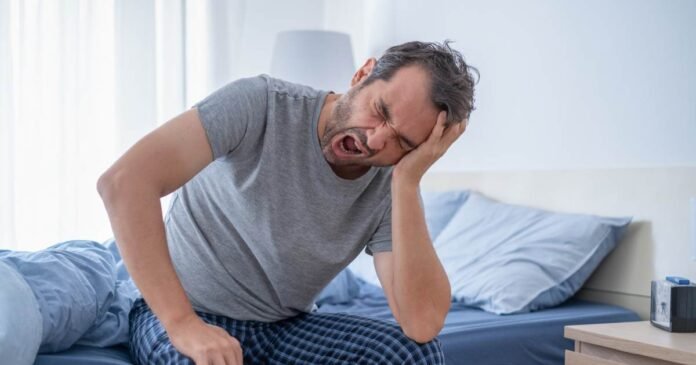Do you often find yourself yawning and feeling groggy even after a full night’s sleep? It can be frustrating when you’ve clocked in a solid 8 hours of shut-eye, yet you’re still not feeling refreshed. Let’s explore some common reasons why this might be happening.
1. Quality of Sleep Matters
It’s not just about the quantity of sleep; the quality matters too. Factors like an uncomfortable mattress, excessive noise, or an overly bright room can impact the quality of your sleep. Ensure your sleep environment is conducive to a good night’s rest.
2. Sleep Apnea
Sleep apnea is a condition where your breathing briefly stops during sleep. Even if you’re in bed for 8 hours, interruptions in your breathing can prevent you from reaching deep, restorative sleep. If you suspect sleep apnea, it’s essential to consult a healthcare professional.
3. Stress and Anxiety
High stress levels or anxiety can interfere with your ability to relax and fall into a deep sleep. Consider incorporating relaxation techniques, such as deep breathing or meditation, into your routine to help manage stress.
4. Screen Time Before Bed
The blue light emitted by screens on phones, tablets, and computers can disrupt your sleep by suppressing melatonin production. Try to limit screen time at least an hour before bedtime to promote better sleep.
5. Inconsistent Sleep Schedule
Maintaining a consistent sleep schedule, even on weekends, helps regulate your body’s internal clock. Going to bed and waking up at the same time every day can improve the overall quality of your sleep.
6. Caffeine and Late-Night Snacking
Consuming caffeine or indulging in heavy snacks close to bedtime can interfere with your ability to fall asleep and stay asleep. Opt for a light, caffeine-free snack if you’re hungry before bed.
7. Lack of Physical Activity
Regular exercise promotes better sleep, but timing matters. Engaging in intense physical activity too close to bedtime can have the opposite effect. Aim to finish your workout at least a few hours before hitting the hay.
8. Dehydration
Even mild dehydration can affect your sleep. Make sure you’re staying adequately hydrated throughout the day, but be mindful of reducing fluid intake closer to bedtime to avoid waking up for bathroom trips.
9. Sleep Disorders
Conditions like insomnia, restless legs syndrome, or narcolepsy can disrupt your sleep cycle, preventing you from getting the restorative sleep your body needs. If you suspect a sleep disorder, consult a healthcare professional for evaluation and guidance.
10. Medication Side Effects
Some medications can cause drowsiness or interfere with sleep patterns. If you’re experiencing persistent fatigue, check with your doctor to see if any medications you’re taking might be contributing to the issue.
11. Underlying Health Conditions
Certain health conditions, such as thyroid problems, anemia, or chronic fatigue syndrome, can lead to persistent fatigue. A thorough medical evaluation can help identify any underlying health issues.
12. Alcohol Consumption
While alcohol might initially make you feel drowsy, it can disrupt the later stages of sleep, leading to fragmented and less restful rest. Limit alcohol intake, especially close to bedtime.
13. Environmental Factors
External factors like excessive noise, temperature extremes, or a bedroom that’s too bright can impact your sleep quality. Ensure your sleep environment is comfortable and conducive to rest.
14. Snoring (For You or Your Partner):
Loud snoring can be a sign of sleep apnea, but even mild snoring can disrupt your own or your partner’s sleep. Addressing snoring issues may lead to a more restful night for everyone.
15. Hormonal Changes:
Hormonal fluctuations, especially in women during certain phases of the menstrual cycle or during menopause, can affect sleep patterns. Understanding these changes can help manage sleep-related challenges.
Conclusion
Remember, achieving quality sleep involves addressing various lifestyle factors. By making small adjustments, you may find yourself waking up more refreshed and ready to tackle the day, even after just 8 hours of sleep!
If you’ve ruled out common lifestyle factors and are still experiencing persistent fatigue, it’s advisable to consult with a healthcare professional. They can conduct a more in-depth assessment to identify any underlying issues affecting your sleep and overall well-being.
